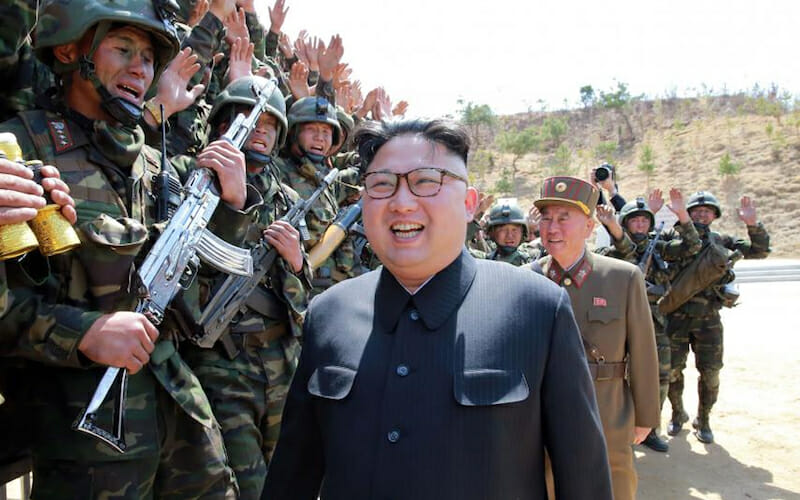
Why the United States May Have to Accept a Limited Nuclear North Korea
International leaders scratch their heads over the growing problem on the Korean Peninsula. Two world leaders angrily butt heads and threaten war. Diplomacy is going nowhere. We need a new approach to solve the North Korea problem – and fast.
As outrageous as it might sound, acceptance of a limited North Korean nuclear program may be the sensible answer we have been looking for. The past two U.S. administrations have failed at convincing the regime to give up its nuclear arsenal. There is no reason to believe the Trump administration will be any more successful.
Agreeing to allow the Kim Jong-Un regime to keep the nuclear weapons it already has, while promising to not expand its program any further, might be the key to the peace the world needs. There are three reasons to accept a nuclear North Korea:
First, traditional methods of pressure on North Korea are not working. Continued Chinese resistance is hindering the effectiveness of economic sanctions. China fears the collapse of North Korea and a flood of refugees coming across its borders. This, coupled with an increased American military presence in the region, makes a North Korean collapse too costly for China to consider. Without China’s full cooperation, Kim Jong-Un is unlikely to give up his nuclear arsenal.
Second, the costs of a preemptive strike are too high. Uncertainty plagues a potential U.S. military strike of North Korea. There is no way to guarantee that it will work. North Korea will almost certainly retain some second-strike capability to attack American troops in the region or U.S. allies. A preemptive strike will lead to vast destruction.
Third, accepting a nuclear North Korea avoids war. It promotes further diplomacy and brings North Korea to the negotiating table. It eases tensions by giving North Korea the security it desires. Powerful countries surround North Korea. With China to its North and U.S. backed South Korea in the South, North Korea’s nuclear arsenal acts as a safeguard to deter potential threats.
Nuclear deterrence is not a new concept. Pakistan gained nuclear capabilities to balance its nuclear neighbor, India. Nine countries in the world have nuclear weapons, but they have only been used once in war. History on the Korean Peninsula shows deterrence can work.
Critics claim allowing North Korea to keep its nuclear weapons poses too big of a risk to international security. But nuclear deterrence works both ways.
Preemptively using nuclear weapons on the world’s greatest nuclear power, the United States, would not only ensure the end of the Kim regime, but the end of North Korea itself. Allowing North Korea to keep a limited nuclear arsenal ends current hostilities and reassures the Kim Jong-Un regime that its nuclear neighbors will stay away. A small price to pay for world security.
With traditional policy options exhausted, it’s time for a change. Allowing a limited nuclear North Korea gives hope to a situation that once seemed hopeless. It opens a diplomatic channel by giving Kim Jong-Un the option of reentering the international community. It gives North Korea the security it so desperately craves and it gives the world the peace it so desperately needs. It’s time to switch gears—it’s time to bring stability back to the Korean Peninsula.

